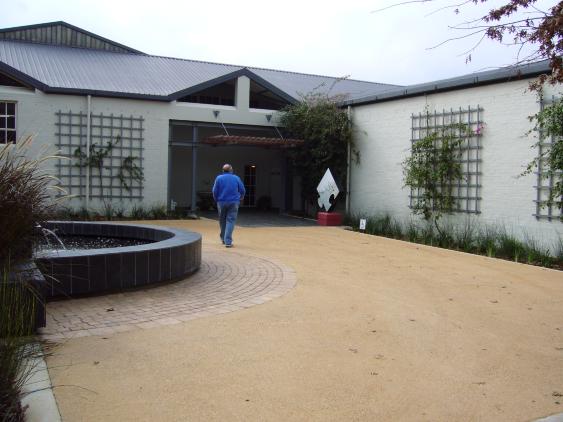An offhand comment from Gyles Webb at Thelema on the gold medal wines at the recent Trophy Wine Show having two things in common: 3g of residual sugar and high acid levels, started me thinking about the sugar epidemic. The GVG and I had descended on Thelema like wolves on the flock and Gyles’ comments were not made with a smile as his wines are bone dry and have moderate levels of acid.

Nassim Nicholas Taleb, my favourite guru, kicks off his website with the admission: “my major hobby is teasing people who take themselves & the quality of their knowledge too seriously & those who don’t have the courage to sometimes say: I don’t know…. (You may not be able to change the world but can at least get some entertainment & make a living out of the epistemic arrogance of the human race).” The right frame of mind, I would argue, in which to approach wine tasting. His musings on low carb philology are revealing:
“It hit me that the fruits that we eat are, like bread, the product of agriculture, not nature. Fruits are not so natural, after all.
Fruits in the Mediterranean were not as sweet [in the pre-agricultural world] as they are today. I am convinced of that, on two accounts. First, consider the taste of traditional fruits. They have been bred for progressive increases in sweetness (sweetness is addictive and contagious: the crusaders did not know about dessert before they encountered what became the sorbet and the honey-sweetened cake).
Husbandry is a selective process leading to sweeter and sweeter fruits owing to the treadmill effect of the artificial. Second, examine the names of fruits in ancient Mediterranean languages: for a fruit to have been prevalent, it would need to have a name in the Hebrew Bible, or possible the younger classical Greek. Non-indigenous names would logically be fruits that were imported.
The word Apple exists in old Semitic languages, though it may just mean “fruit” (I assume that apple was the forbidden fruit –the sweetest then). But the old apple then was not what we would call apple today. I remember apples from the Kadisha valley near my house in Amioun. There are areas in the holy mountain that have resisted tinkering – altitude is too high for the inhabitants to have a choice of what to grow.
I recall the taste of these apples during my childhood –and the variations, Sfarjl. They were not sweet. Nor were grapes sweet. Fruits had an acidity to them I don’t find anymore. They were low-carb.
Higher carb items, such as the orange, did not exist in the ancient world – no name for orange. Bitter lemons grew then. The orange came from Southern India and was slowly and progressively invasive – in Dickensian times, a single orange was the ideal Christmas gift. And not just in Victorian England: In France, too, it was a delicacy. In modern Greek, they bear the name portokali as the Portuguese marketed them. So were tomatoes – imported from Central America (a tomato is technically a fruit). So were carrots –roots were bitter in the ancient world.
Berries (tut) were the main fruit. But strawberries they were not: they were small, wild and tart. There is no biblical name for strawberries. What is sweet is not so natural.”
Fruit also has a cultural context: SA strawberries invariably have a green and woody component of their flavor and taste nothing like those small red triangles from France. So when you write a tasting note for the 2008 vintage rosé from Buitenverwachting, beware of which red berries you are referring too.



